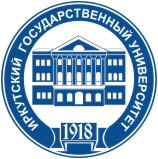European Studies Program at ISU: Foreign Policy and Identity Issues
Chair holder - Lyudmila Igumnova
The present Jean Monnet project aims at improving the existing EU studies program at Irkutsk State University. It focuses on EU foreign policy and identity problems. Fernand Braudel Center for International and European Studies is deeply engaged in the implementation of the program.
The project deepens teaching in EU studies embodied in the official curriculum of ISU History faculty and seeks to harmonize methodology, syllabi and teaching materials as well as to comply with European teaching standards. Teaching activities within the project involve 4 courses on EU for BA students of the faculty:
- “Regional Aspects of Contemporary International Relations: EU case”,
- “Foreign and Security Policy of the European Union”,
- “Russia and Europe: Mutual Perceptions”,
- “European Identity: Theory and Practice”.
EU studies program intends to create interest in the EU among students (not only the ones involved in the program), to advice and mentor students who specialize in EU studies, to train specialists able to develop their careers in civil and diplomatic services, NGOs, media, academic sphere and capable to participate in constructive dialogue between Russia and the EU.
The research dimension of the project involves a number of theoretical approaches to the EU’s foreign policy (e.g. the concepts of normative, model, soft, transformative power). Normative power theoretical framework is applied to EU-Russia relations adding an insight into the current state of bilateral interaction. One of the purposes of the analysis is to distinguish the elements of normative and other types of power in EU’s official communications with Moscow, to suggest how Brussels positions itself vis-à-vis Russia and to specify what kind of actor the EU wants to be seen as in relations with Russia. Methods and insights of political science and international relations form the largest part of project. The research design relies on qualitative data collection, comparative analysis, quantitative and qualitative content analysis. Several levels of engagement methods are employed (counseling, involvement and collaboration) to advance work with individual professionals and research groups. These methods imply expert interviews, meetings with researches/experts/representatives of EU’s think tanks, knowledge exchange meetings and knowledge exchange groups. One of the research results of the project is a monograph titled “Foreign Policy and International Affairs of the European Union: Comprehending the Role of the EU in the World”.
The project gives a greater visibility to EU studies. Engagement methods are applied for effective outreach and dissemination strategies to ensure openness and transparency of the project. Opportunities are given for the public to participate in the events organized within the project. Such involvement methods as seminars, games, surveys and counseling contribute to the fulfillment of Action objectives. Methods of informing: academic publications, website, public lectures, conference presentations, practical demonstrations (films, advertisements) attempt to create interest in the EU and to raise awareness about the EU studies program among students, professionals and wider public.
The project facilitates educational and research cooperation of ISU with other Universities in the area of EU studies. The partnerships with Jean Monnet Centers of Excellence/Chairs in Russia and cooperation within Siberian Network of EU Studies Centers (SNESC) enable to create joint working groups for implementation of collective academic and research projects, dissemination of results and fostering academic and student mobility.
Teaching, research, dissemination and outreach activities within the project are closely related and reinforce each other.


